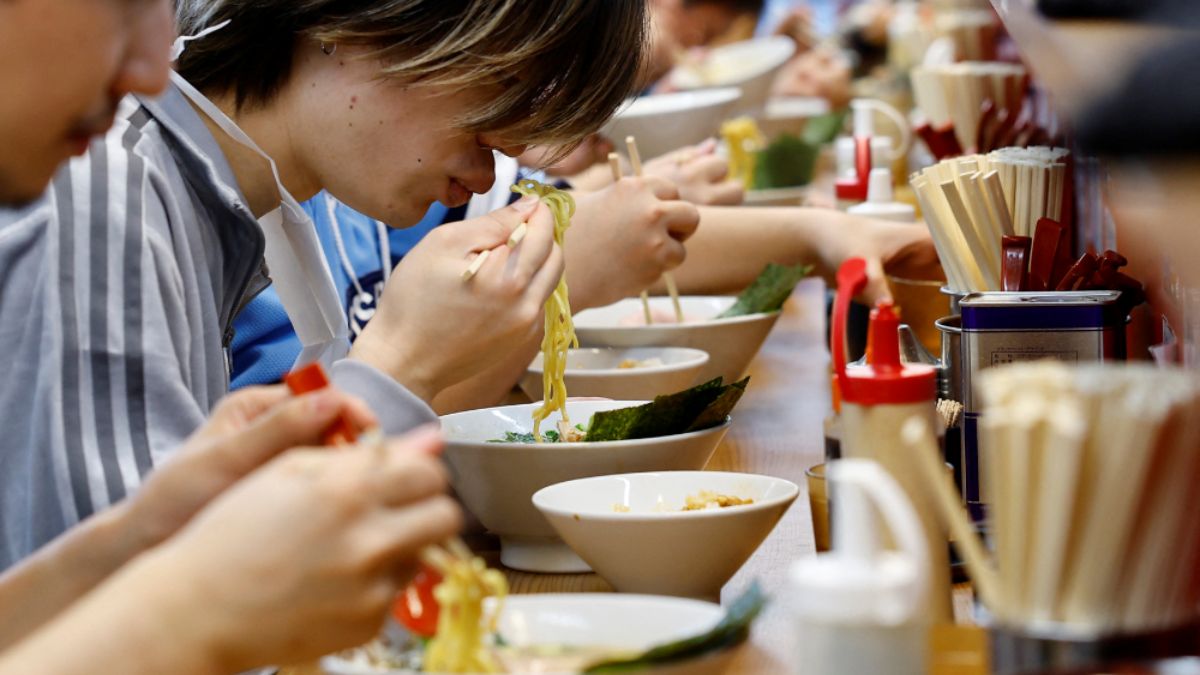In Japan’s ramen-loving heartland, researchers have stirred debate with a new study suggesting that eating the popular noodle dish three or more times a week could come with health risks.
The joint research, carried out by universities in Japan ’s northeastern Yamagata prefecture, a region known for some of the country’s highest ramen consumption, found that people who frequently ate ramen faced about 1.5 times the risk of death compared to those who limited it to just once or twice a week.
So, what’s behind this link? Here’s what the study says.
Can eating ramen too frequently kill you?
The study followed 6,725 residents of Yamagata prefecture aged 40 and above over a period of about four and a half years, grouping them by how often they ate ramen.
Participants were divided into categories ranging from less than once a month to three or more times a week.
Findings showed that those eating ramen three or more times weekly had about 1.52 times the risk of death compared to people who ate it once or twice a week. The study also noted that individuals who consumed more than half of the broth faced an even higher mortality risk.
Men under 70 appeared to be especially affected. Among participants who also drank alcohol regularly, the danger climbed further, with their risk of death nearly three times higher than that of moderate ramen eaters.
Interestingly, the lowest death rates were found in the group that ate ramen once or twice a week. Researchers suggested that occasional indulgence may not only be safe but could actually be less risky than eating ramen very rarely.
The findings were published in The Journal of Nutrition, Health and Ageing in August.
Also read: ‘Godzilla Ramen’ goes viral in Taiwan: Would you take a bite of it?
What makes ramen risky?
The biggest culprit appears to be sodium. Ramen broth is notoriously salty, and when people drink most or all of it, their salt intake shoots up dramatically. Excess sodium has long been linked to high blood pressure, stroke, and even stomach cancer.
“This study showed that Japanese community residents frequently consume ramen noodles and high intake is associated with various comorbidities,” scientists wrote.
Dr Miho Suzuki from Yonezawa University of Nutrition and Science, who participated in the study, advised, “To reduce sodium intake, one should refrain from drinking the broth and instead add vegetables to balance nutrition.”
Also read: The Japanese train that uses ramen as fuel
**Not a clear answer
**
The researchers emphasised that the evidence wasn’t strong enough to establish a clear connection between ramen consumption and higher death risk.
They explained that the findings could also be influenced by lifestyle choices. For instance, people already dealing with conditions like hypertension or diabetes may have reduced or avoided ramen following medical advice, which could skew the results.
The team further clarified that ramen itself isn’t inherently dangerous. Instead, the broader lifestyle patterns of those who eat ramen often, such as irregular diets, lack of exercise, or excessive intake of processed foods, might be contributing to health problems over time.
With input from agencies
)